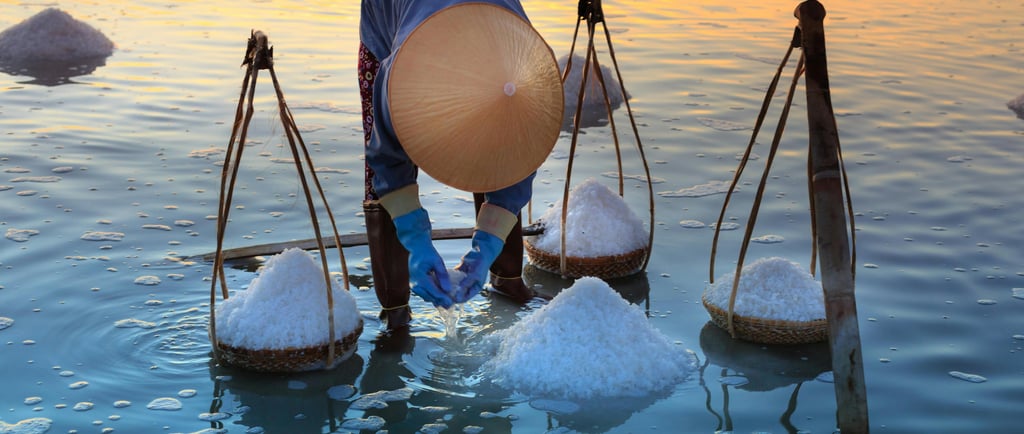The Importance of Salt in Survival
FOOD SURVIVAL


More Than Just Flavor
In normal life, salt is taken for granted as a seasoning. In survival, it becomes one of the most valuable resources you can find. Salt is not just about taste, it is vital for body function, food preservation, and even trade. Without it, your health suffers quickly. With it, you gain strength, stability, and options.
Why the Body Needs Salt
Salt contains sodium and chloride, minerals your body cannot function without. They regulate fluids, nerve signals, and muscle movement. Without enough salt, you may experience dizziness, muscle cramps, and fatigue. Severe shortages can lead to confusion, seizures, or death. In survival, where sweating and physical labor are constant, replacing lost salt is just as important as drinking water.
Salt as a Preservative
Before refrigeration, salt was humanity’s main tool for keeping food safe. It draws out moisture, creating conditions where bacteria struggle to survive. Meat, fish, and even vegetables can be preserved by salting or brining. In survival situations, this means you can turn a large catch or harvest into food that lasts weeks instead of hours. A supply of salt essentially becomes a food security system.
Natural Sources of Salt
If you do not have packaged salt, nature provides alternatives. Seawater is an obvious source, though it must be boiled and evaporated to leave behind usable crystals. Some regions have salt deposits or rocks that can be ground into powder. Even the ashes of certain plants, such as kelp or seaweed, contain salty minerals. Knowing how to identify and process these resources can make the difference between deficiency and strength.
Finding Salt in Urban Ruins
In abandoned cities, salt is often easier to find than in the wild. Grocery stores, restaurants, and warehouses may contain packets, bags, or blocks. Even small packets left in fast food containers or cafeterias are worth collecting. Salt is lightweight, durable, and does not spoil, so any supply you find is a long-term treasure.
Trading and Bartering Power
Salt has been so valuable throughout history that it was once used as currency. In survival communities, it quickly becomes a trade item again. People need it for food, health, and preservation, which makes it an excellent bargaining chip. A small pouch of salt may buy firewood, medicine, or even protection when resources are scarce.
Using Salt Beyond Food
Salt has many secondary uses. It can clean wounds by reducing bacterial growth, though it stings. Mixed with water, it can soothe sore throats or be used as a rinse to maintain oral hygiene. Salt solutions can also be used to tan hides or cure animal skins for clothing. Each of these uses adds value to every pinch you carry.
Balancing Too Much and Too Little
While a shortage of salt is dangerous, consuming seawater or oversalted food is equally harmful. Too much salt dehydrates the body and strains the kidneys. Balance is the key. Use salt wisely to preserve food and replace what your body loses, but avoid eating large amounts without sufficient water.
Storage and Portability
Salt is one of the easiest survival items to store. It does not spoil and requires no special packaging. Keep it dry, sealed, and safe from spillage. Even small containers or pouches can hold enough for weeks of survival use. Unlike food or water, salt weighs little compared to the benefits it provides.
Salt as a Survival Priority
Water, shelter, and food are often named as the top priorities in survival. Salt deserves a place close to them. It fuels the body, preserves precious resources, and holds value for trade. Whether collected from the sea, mined from the ground, or scavenged in forgotten kitchens, salt is more than a seasoning. It is a lifeline that strengthens your chances of survival each day you have it.